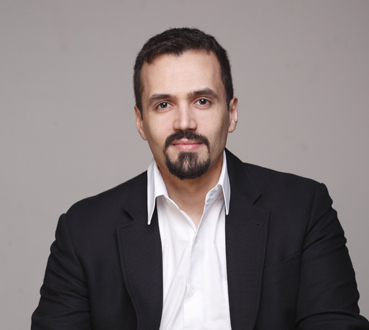
By Hussien Abd Rabu
How did it feel to listen to former president Hosni Mubarak when he was congratulating the Egyptian people on Sinai Independence Day, and talking about his sacrifices to liberate the occupied land and his evaluation of the current regime? And a while after that you see his son, Gamal Mubarak, taking a tour in Tahrir Square to offer condolences to one of his father’s regime opponents, and then take his family to the Pyramids. After that, businessman Hussein Salem tells us that he is now living on aid from his friends, and he will pay back half of his wealth to the country.
If those are the ones who are on the scene, why did they show up now? And why were some people keen on them showing up again, when at the same time voices that criticise the regime are loud, and some demanded that the regime be ousted? What is weird is that those who opposed the regime are the ones who supported it earlier.
Some explain the situation of Mubarak showing up and the criticism of Al-Sisi by saying that there is a plan to return Mubarak to the presidency, especially his most prominent icons in the regime, businessmen, leaders of his party. Those were the people benefiting from Mubarak’s regime, who had economic and political power not found with the current regime which is demanding that they give more than what they take. This, of course, does not satisfy them. Thus, they promote the return of Mubarak and his family through their TV channels, as if there had been no revolution taking place.
Businessmen also believe that Al-Sisi’s regime monopolised economic activity through executing most of the projects via the Armed Forces, which had a negative impact on the activities of these businessmen and their companies even if they took part in these projects. Their participation will decrease their revenues. So how can they benefit from the current regime which they did not support in the presidential elections and against whom they did not stand?
However, they found no place for them in the regime, so they started spreading rumours of the regime’s failure, taking advantage of the national economy’s issues and the unstable security situation. This helps those businessmen fight a hidden battle with some of the state’s entities in light of the absence of a good presidential team that would protect the president’s back, which is the same issue ousted former president Mohamed Morsi faced.
Mubarak’s people have again started presenting Gamal Mubarak to the political arena under the excuse that he could be approved of by the US, as well as the West, which is still hesitant to acknowledge the current regime. In other words, presenting Gamal Mubarak as a civil candidate may be supported by the US as well as the West. A great example of this is the Algerian case, when reconciliation occurred between the army and the Islamic groups in the ’90s. There was an agreement set to choose a different side, from both sides of the conflict. They presented Bouteflika, as he was away for more than two decades, and then he was elected. If we apply this model in Egypt we will find it close: the two sides of the conflict are the army and the Muslim Brotherhood; moreover, the Brotherhood will prefer Gamal Mubarak than the survival of the current regime.
On the other hand, will the huge popularity of Al-Sisi protect him from this confrontation? Or will the vulnerability of the political situation lead to his leaving in case he was not aware of the importance of the revival of political life in the Egyptian street in order to defend himself, rather being an easy prey to the state of Mubarak and its men.
Hussien Abd Rabu is an Egyptian journalist and assistant Editor-in-Chief of Al-Borsa newspaper


